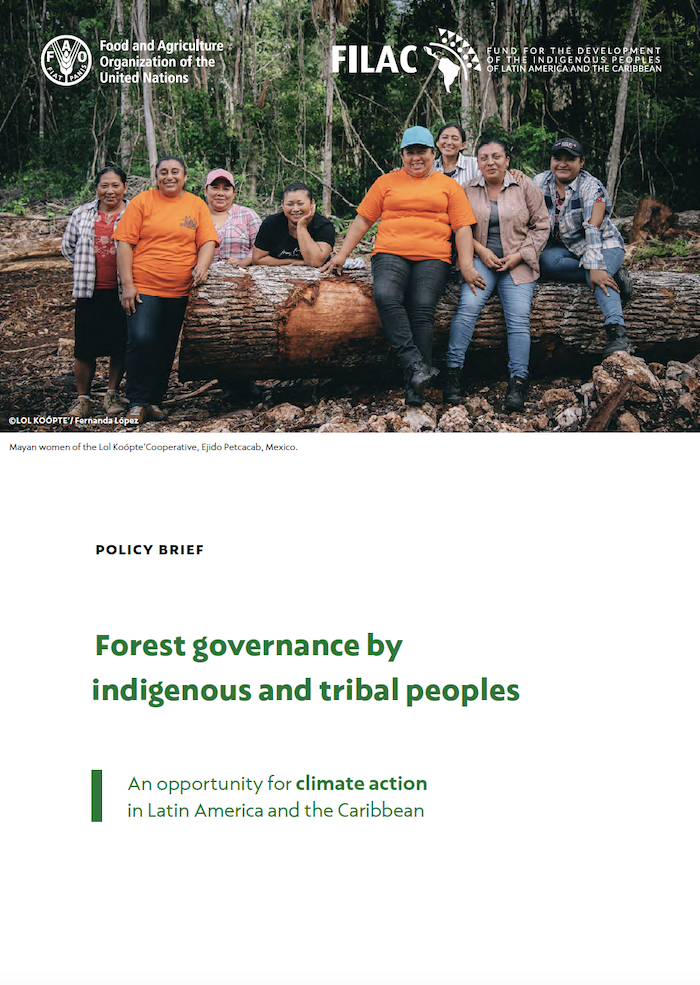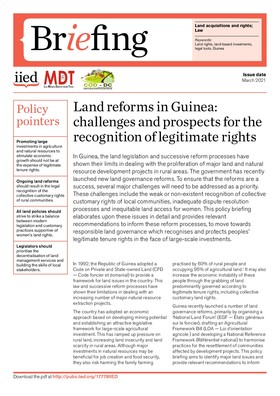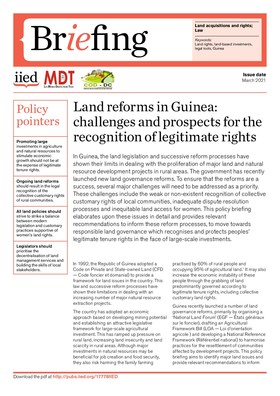Policy Brief: Forest governance by indigenous and tribal peoples
Indigenous and tribal peoples control about one third of Latin America and the Caribbean’s forests. Supporting their efforts to control, sustainably manage, and benefit from these forests can greatly help to solve the problems of climate change, loss of biological and cultural diversity, rural vulnerability, and food insecurity.









